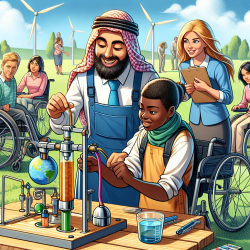Toxic stress is a severe and prolonged form of stress that can have lasting effects on a child's development and health. It arises from adverse experiences without adequate support from caregivers. Understanding its impact and learning how to mitigate it is crucial for practitioners working with children. This blog will explore key insights from the research article "Toxic Stress: Effects, Prevention and Treatment" and provide actionable strategies for practitioners.
The Impact of Toxic Stress on Children
Toxic stress can lead to permanent changes in brain architecture, epigenetic alterations, and modified gene function. These changes increase the risk of stress-related diseases and mental health issues such as depression, PTSD, and anxiety. Children exposed to toxic stress are also more likely to develop maladaptive coping mechanisms and unhealthy lifestyles.
The American Academy of Pediatrics (AAP) emphasizes the need for healthcare providers to understand the lifelong impact of toxic stress. They recommend training for all healthcare providers in recognizing and addressing toxic stress in children.
Building Resilience in Children
Resilience is the ability to adapt positively in the face of adversity. It plays a significant role in mitigating the effects of toxic stress. Practitioners can help build resilience by fostering strong relationships between children and their caregivers or teachers. Encouraging social support networks and promoting positive self-concept are also vital strategies.
- Promote Strong Relationships: Encourage caregivers to build nurturing relationships with children.
- Enhance Social Support: Connect families with community resources that offer support.
- Encourage Positive Self-Concept: Help children develop a sense of competence and control over their situations.
The Role of Relaxation Techniques
The relaxation response is a state that counteracts the stress response. Techniques such as deep breathing, meditation, yoga, and guided imagery can help children manage stress effectively. Practitioners should incorporate these techniques into their practice to help children build resilience against toxic stress.
- Meditation: Encourage regular meditation sessions to promote relaxation.
- Deep Breathing: Teach children simple breathing exercises to calm their minds.
- Guided Imagery: Use visualization techniques to help children imagine peaceful scenarios.
The Pediatrician's Role in Addressing Toxic Stress
Pediatricians play a unique role in identifying and addressing toxic stress. They can implement screening processes to identify at-risk children and provide anticipatory guidance to prevent toxic stress. By collaborating with families and communities, pediatricians can create comprehensive treatment plans that address the needs of each child.
The Importance of Early Intervention
The first few years of life are critical periods for brain development. Early intervention can significantly reduce the impact of toxic stress. Practitioners should focus on preventive measures that promote positive environmental influences and supportive interactions with caregivers.










